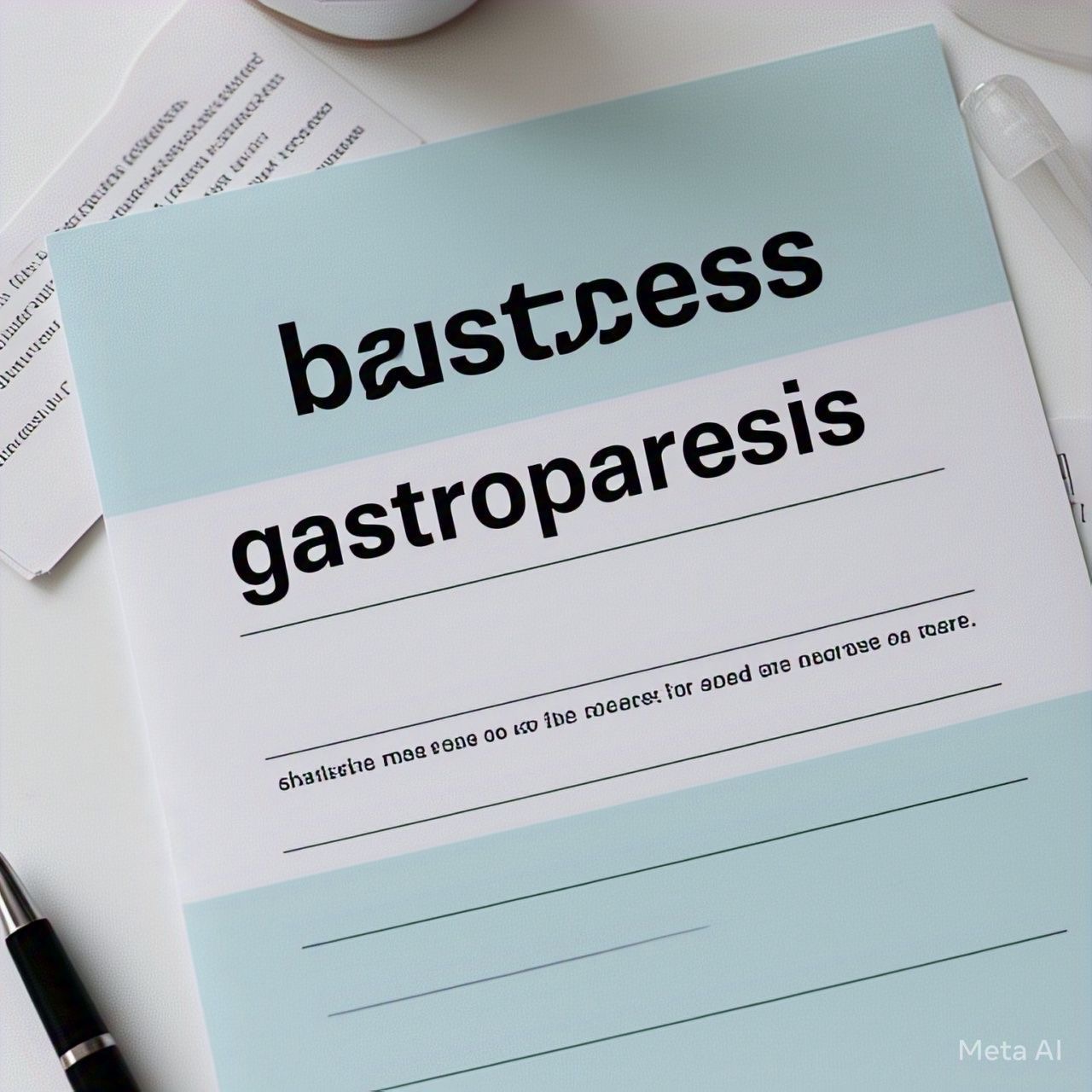
Gastroparesis, also known as delayed gastric emptying, is a condition that affects how the stomach muscles move food into the small intestine. It slows down or stops the stomach from emptying properly, even when there is no blockage. This disorder can lead to various digestive issues and significantly impact a person's quality of life.
Gastroparesis occurs when the vagus nerve (which controls stomach movement) is damaged or not functioning correctly. Some common causes include:
✅ Diabetes: High blood sugar levels can damage the vagus nerve over time, making diabetes the leading cause of gastroparesis.
✅ Post-Surgical Complications: Some stomach or esophageal surgeries may affect nerve function.
✅ Neurological Disorders: Conditions like Parkinson’s disease and multiple sclerosis can impact stomach motility.
✅ Autoimmune Disorders: Disorders like scleroderma and lupus may cause digestive tract dysfunction.
✅ Medications: Some drugs, including opioids, antidepressants, and certain diabetes medications, can slow gastric emptying.
✅ Idiopathic Gastroparesis: In many cases, the cause remains unknown.
The symptoms of gastroparesis can range from mild to severe and may include:
🔹 Nausea and Vomiting (especially undigested food)
🔹 Feeling Full Quickly after eating only a small amount
🔹 Bloating and Abdominal Discomfort
🔹 Heartburn and Acid Reflux
🔹 Unintentional Weight Loss
🔹 Erratic Blood Sugar Levels (particularly in people with diabetes)
🔹 Poor Appetite and Malnutrition Risks
Since gastroparesis affects digestion and nutrient absorption, dietary adjustments play a crucial role in managing symptoms and preventing complications like dehydration, malnutrition, and severe weight loss.
🔹 Eat Small, Frequent Meals – Instead of three large meals, aim for 5-6 smaller meals throughout the day to ease digestion.
🔹 Choose Low-Fiber Foods – High-fiber foods can slow stomach emptying further. Opt for well-cooked vegetables, fruit juices (without pulp), and refined grains instead of whole grains.
🔹 Prioritize Soft and Liquid-Based Foods – Blended, pureed, or liquid meals (soups, smoothies, yogurts) are often easier to digest.
🔹 Limit Fat Intake – While healthy fats are essential, they slow down digestion. Stick to small amounts of easily digestible fats like avocado or nut butter.
🔹 Stay Hydrated – Dehydration can worsen symptoms. Sip on water, herbal teas, broths, or electrolyte solutions throughout the day.
🔹 Chew Food Thoroughly – Proper chewing helps break down food and makes digestion easier.
🔹 Monitor Blood Sugar Levels – If you have diabetes, keeping blood sugar levels stable can help prevent worsening gastroparesis symptoms.
🔹 Avoid Carbonated Beverages – They can increase bloating and discomfort.
🔹 Medications: Some drugs help stimulate stomach contractions (e.g., metoclopramide, domperidone, erythromycin), while others control nausea and vomiting.
🔹 Gastric Electrical Stimulation: In severe cases, a small device may be implanted to help regulate stomach emptying.
🔹 Nutritional Support: If oral intake is insufficient, enteral nutrition (via feeding tubes) may be necessary.
Many people with gastroparesis struggle with misdiagnosis, inadequate treatment, and limited nutritional guidance. Raising awareness among both healthcare professionals and the general public is crucial to improving patient outcomes.
💡 Have questions? Need expert guidance? Email us at tgncinitiative@gmail.com for nutrition counselling and support! 💙
